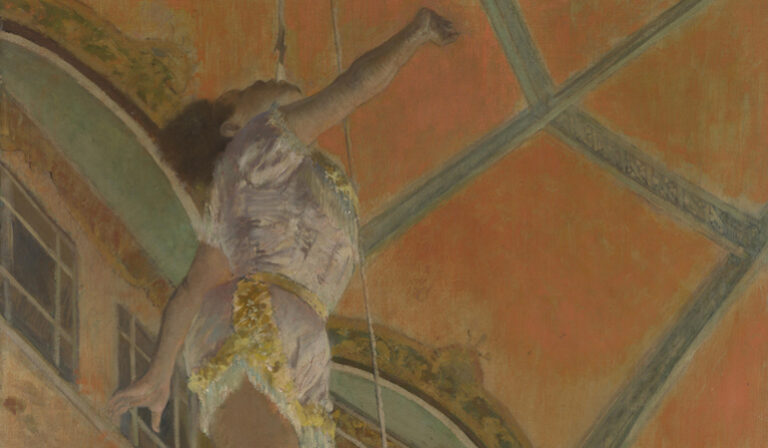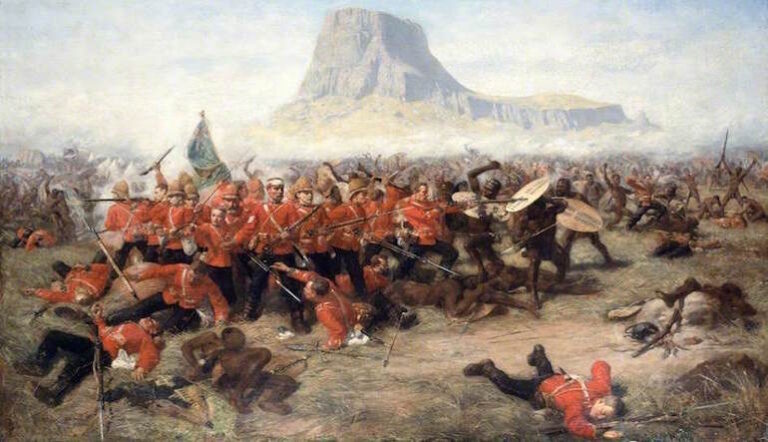Corelli’s Mandolin and the Patriarchy
“Boys will be boys will be boys,” goes the chant in the now infamous Gilette commercial, which was intended as a supportive reaction to the #MeToo movement, looking to bring the behaviors and attitudes of toxic masculinity to the fore. While its message—that men are responsible for “challenging [themselves] to do more,” like intervening on behalf of women and children, in order to “get closer to [their] best”—and delivery received considerable pushback, guidelines issued by the American Psychological Association on how psychologists should work with men and boys is a sign that American society believes that it’s time to acknowledge that the patriarchy is hurting men themselves.
While this belief has been common in feminist circles for decades, it is less prevalent in the mainstream. There have been, however, writers who have explored this idea at length. Louis de Bernières’ 1994 novel, Corelli’s Mandolin, serves as a prominent example. While the 2001 film adaptation of the book, set largely on the island of Kefalonia, Greece during World War II, is the love story between Pelagia, a young woman who is more educated at the time than many of her peers, and Captain Antonio Corelli, the titular mandolin-playing Italian officer among the occupying Axis forces, one of the many side plots is that of the ruin of Mandras, Pelagia’s first fiancé, at the hands of masculine ideals.
Mandras is described as having a butt so beautiful that his fiancée imagines it to look like two melons beneath his clothes, and his fiancée’s father, Dr. Iannis, wonders if his had ever been that lovely. Pelagia, in spying on him fishing in the nude by accident, is “transfixed by his beauty, by the harmony and strength of his work, and could not resist the idea that God had given her a chance to look over what was hers before she took possession of it; the slim hips, the sharp shoulders, the taut stomach, the dark shadow of the groin with its mysterious modellings.” Mandras brings fish to his beloved every day, and both he and Pelagia are convinced that they’ll be happy together.
Once Dr. Iannis tells him that there will be no dowry, however, he wonders what his friends and neighbors will say and then begins to doubt his decision to marry Pelagia. He thinks, “They’ll say that Doctor Iannis doesn’t think I’m good enough, that’s what. And he’s always calling me a fool and an idiot, and saying that I’ve got too much kefi to be a good husband.” The kefi he worries about in this context includes high spirits, playfulness, and unseriousness—Mandras is a goofball, as epitomized by the incident early on in the novel where he lands on a terracotta pot after swinging around the olive tree in front of Pelagia’s house.
Mandras internalizes this criticism. It eats at him until he believes that he will “never be a man until [he’s] done something important, something great,” though he can’t define what exactly that is. He decides that the way to accomplish this and thus solidify his manhood is to become a soldier. Service will, he thinks, give him “something to get to grips with” that will thus make others see him as serious enough for Pelagia.
We learn, however, that the doctor has never told Mandras that he’s not worthy of his daughter, only telling him that he has too much kefi to be a good husband—a comment meant to discourage the immature suitor. Dr. Iannis won’t give Mandras a dowry not because he doesn’t believe Mandras isn’t worthy but because he is unconventional for his time and doesn’t believe in dowries at all. In fact, he’s so unconventional that he teaches Pelagia poetry, Italian, and Katharevousa Greek—the formal “purified” Greek of the late eighteenth century that was used in official and literary documents. While he does tell Pelagia that her education will be a problem given that Mandras, since “he is a man after all,” will likely expect to be better than his wife, it isn’t something he says to Mandras himself nor something that the novel illustrates comes to Mandras from outside sources.
None of this, however, seems to matters, and Mandras goes to the front. His battalion is decimated by the Germans, and he eventually finds his way back home. When he arrives, he is starving and covered with filth, lice, psoriasis, and a number of other conditions that make him appear less than human to Pelagia, who finds him in her kitchen. Pelagia, her father, and Mandras’s mother, Drosoula, bring him back to health, but Mandras falls into a depression, swearing to himself that he will go back to the front when he is fully recovered to “reclaim the dream of Pelagia and love her without bitterness” as he did when he was in the mountains fighting the Germans and as he fought to survive on his trek home. Then, he says, he will be “remade and… [will] have done things so great that even a queen would beg to be [his] bride.”
Mandras finally believes he has achieved greatness when he and a group of men are surrounded by a group of guerilla fighters from one of the wings of the National Liberation Front, ELAS (Greek People’s Liberation Army). The ELAS leader, a commander named Hector, bullies Mandras into killing an old man. He tells Mandras that the man is “guilty,” but he not of what; Hector then hands Mandras a rope. When Mandras hits the man lightly, Hector takes over, beating the rope against the man so that it cuts slashes into his skin. He hands the rope back to Mandras, who then continues to whip the man until his back is nothing but “pulp.” Mandras says the beating was
easier at each stroke. … It was as if every rage from the earliest year of childhood was welling up inside him, purging him, leaving him renewed and cleansed. The old man, who had been yelping and jumping sideways at every blow, …finally threw himself to the ground, whining piteously, and Mandras suddenly knew that he could be a god.
When Mandras is handed a pistol to finish the man off, he hesitates, but because he feels he can’t lose face, that he needs to look like a man before other men, he shoots the old man, who reminds him of Dr. Iannis.
We are left to imagine where this start down a dark path leads Mandras. It is noted that Hector realizes that Mandras is a little lost, frustrated, and “young enough to be impressed and delighted by the attaching of resonant names to lofty concepts.” The brute commander takes advantage of this naiveté and obsession with impossible-to-achieve masculine ideals to indoctrinate him. Hector teaches the illiterate Mandras to read, but when Mandras returns to Kefalonia at the end of the war, puffed up with the rage of revenge against his former fiancée, whom he has discovered through being able to read had dissolved their engagement long before he had joined ELAS, we see what toxic masculinity has done to the once sweet but insecure man.
He returns “expectant of the dutiful and admiring attention of the fiancée that he had not seen for years,” entirely unrecognizable and having lived “in idleness upon the bounty of the British and the booty stolen from peasants” in Roumeli. He calls Pelagia a slut repeatedly and tries to rape her before she manages to shoot him in the collarbone. His mother returns at that moment and disowns him. Mandras, so far from where he started, finds his end in the sea, where he goes off soak himself just as in the old times. When his body is recovered, a fisherman sees three dolphins, likely the same Mandras had once swum with, pushing him to shore.


